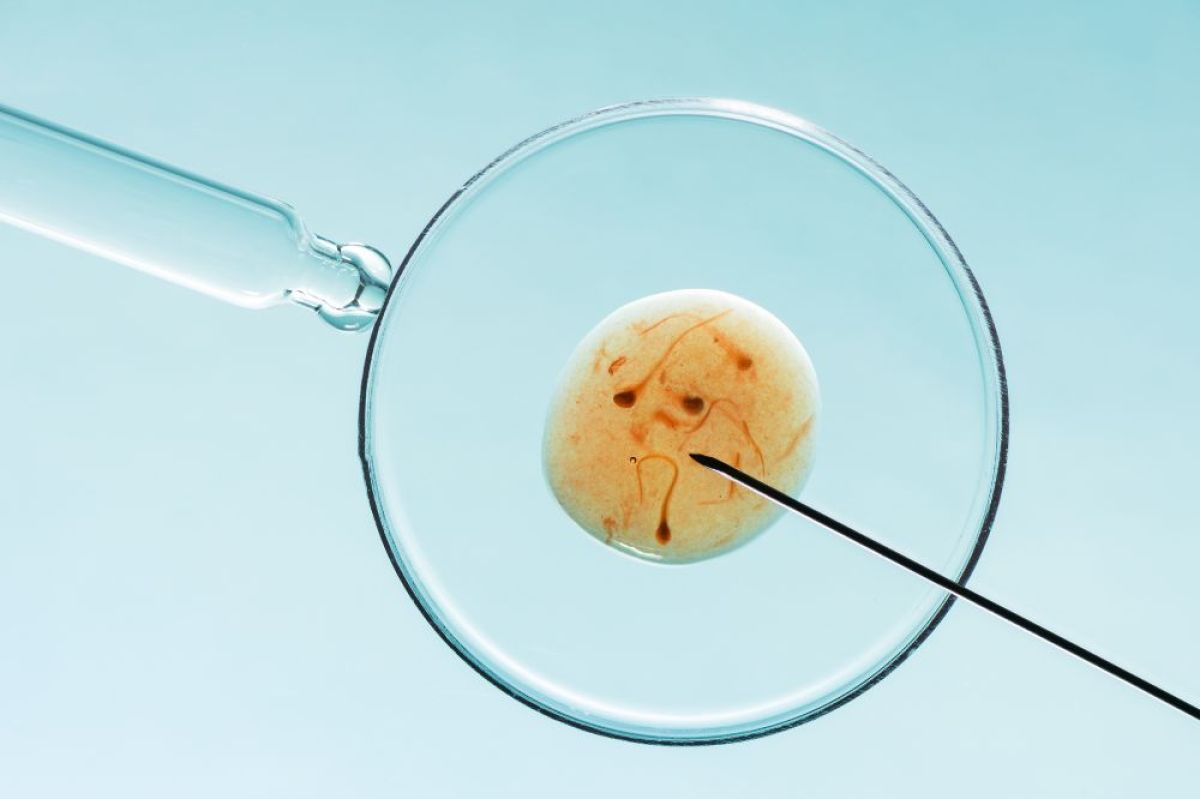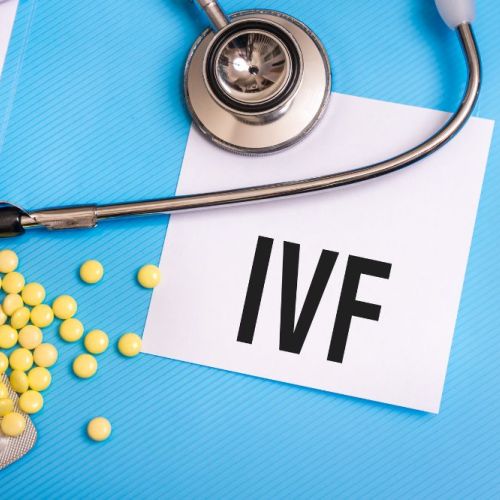How Does Artificial Insemination Work?

One of the most widely used forms of assisted fertility treatments is artificial insemination, also known as intrauterine insemination. A question often heard at the Center for Reproductive Health is “How does artificial insemination work?”
Artificial insemination is a simple procedure in which prepared sperm is inserted directly into the uterus during ovulation. This reduces the time and distance that sperm have to travel, giving healthy sperm a better chance to unite with the egg.
Reasons Artificial Insemination May Be Recommended
There are many different reasons couples may experience infertility. Artificial insemination may be recommended as a treatment option when couples face certain challenges such as:
- Problems with the reproductive system such as endometriosis, problems with ovulation or problems with the cervix
- Male fertility problems such as decreased sperm motility, low sperm count or erectile dysfunction
- Unexplained infertility
Artificial insemination also makes it possible for single women or same-sex female couples to have a child. It’s a minimally invasive form of fertility treatment that’s less costly than in vitro fertilization.
Artificial Insemination Process
Diagnostic tests and a review of your medical history are done before deciding whether artificial insemination is a good option for you. Fertility medication may be prescribed for a short time before the procedure to stimulate ovulation and this medication may help improve success rates. You’re monitored closely with blood work and regular ultrasounds to pinpoint the best time for the procedure, since sperm should be inserted during ovulation.
The sperm that’s used for the procedure may be from your partner or from a donor. The sperm sample is treated to separate healthy sperm from sperm of lower quality. This means that the sperm that’s placed in the uterus is highly concentrated.
Artificial insemination is an outpatient procedure that’s painless and only takes a few minutes. Sperm is inserted using a catheter and you remain lying on your back for a short time after this is done. There’s no need for anesthesia, and you’re able to go home soon after the procedure.
Some women experience mild cramping or some light spotting after the procedure. Your doctor may recommend that you avoid heavy lifting and reduce strenuous activities for the next few weeks. Two weeks after the procedure, you return to the clinic for a blood test that can determine if you’re pregnant.
Will Artificial Insemination Be Successful?
Whether the procedure is successful depends on a combination of factors such as your age and the underlying cause of infertility. If artificial insemination wasn’t successful, you may try it a few more times before considering other methods of fertility treatment. The success rate of artificial insemination declines with age. Women over the age of 40 may want to try in vitro fertilization instead rather than doing another cycle of artificial insemination.
The fertility experts at the Center for Reproductive Health understand how disappointing and overwhelming infertility can be. Call today to schedule a consultation or to obtain more information about artificial insemination or other forms of assisted reproductive technology.
Eliran Mor, MD
Reproductive Endocrinologist located in Encino, Santa Monica, Valencia & West Hollywood, CA
FAQ
What does a reproductive endocrinologist and infertility specialist do?
Reproductive endocrinology and Infertility is a sub-specialty of Obstetrics and Gynecology. In addition to managing medical and surgical treatment of disorders of the female reproductive tract, reproductive endocrinologist and infertility (REI) specialists undergo additional years of training to provide fertility treatments using assisted reproductive technology (ART) such as in vitro fertilization.
Reproductive endocrinologists receive board certification by the American Board of Obstetrics and Gynecology in both Obstetrics and Gynecology and Reproductive Endocrinology and Infertility.
When should I see an REI specialist?
In general, patients should consider consulting with an REI specialist after one year of trying unsuccessfully to achieve pregnancy. The chance of conceiving every month is around 20%, therefore after a full year of trying approximately 15% of couples will still not have achieved a pregnancy.
However, if a woman is over the age of 35 it would be reasonable to see a fertility specialist earlier, typically after 6 months of trying.
Other candidates to seek earlier treatment are women who have irregular menses, endometriosis, fibroids, polycystic ovary syndrome (PCOS), women who have had 2 or more miscarriages, or problems with the fallopian tubes (prior ectopic pregnancy).
What are the reasons we are having trouble conceiving?
Approximately 1/3 of the time cause for infertility is a female factor, 1/3 of the time a male factor, and the remaining 1/3 a couples’ factor.
At CCRH, we emphasize the importance of establishing a correct diagnosis. Both partners undergo a comprehensive evaluation including a medical history and physical exam.
Furthremore, the woman’s ovarian reserve is assessed with a pelvic ultrasound and a hormonal profile. A hysterosalpingogram (HSG) will confirm fallopian tube patency and the uterine cavity is free of intracavitary lesions. A semen analysis is also obtained to evaluate for concentration, motility, and morphology of the sperm.
Additional work up is then individualized to direct the best possible treatment option for each couple.
What is IVF? What is the process like?
In vitro fertilization (IVF) is the process that involves fertilization of an egg outside of a woman’s body.
The process starts with fertility drugs prescribed to help stimulate egg development. In your natural cycle, your body is only able to grow one dominant egg, but with stimulation medication we can recruit multiple eggs to continue to grow. After about 8-10 days of stimulation, the eggs are surgically retrieved and then fertilized with sperm in a specialized laboratory. Fertilized eggs are then cultured under a strictly controlled environment within specialized incubators in the IVF laboratory for 3-5 days while they develop as embryos. Finally, embryos (or an embryo) are transferred into the uterine cavity for implantation.
Should I have IVF?
Before deciding if IVF is the right choice, it’s important to sit down with an REI specialist to discuss available treatment options. For some people, other methods such as fertility drugs, intrauterine insemination (IUI) may be the best first choice treatment. At CCRH, we believe each individual couple is unique and not everyone needs IVF.
Is the IVF procedure painful?
While not painful, the fertility medications may some side effects including headaches, hot flashes, mood swings, and bloating. The injection sites may also bruise.
Will IVF guarantee a baby?
Unfortunately, no. Many people think once they start IVF it’s a matter of time that they will be pregnant and have a baby. But according to national statistics per the Society of Assisted Reproduction (SART), on average 40% of assisted reproduction cycles achieve live births in women under age 35. The chances of success then continue to decrease with advancing age.
At CCRH, we employ only evidence-based interventions to ensure patient safety and optimal outcome. While we cannot guarantee a baby, we guarantee that you will receive the best, most advanced, personalized care to help you maximize your chance of a baby.
What is the success rate for IVF?
The average IVF success rate (success measured in live birth rate) using one’s own eggs begins to drop around age 35 and then rapidly after age 40. This is due to the decline in egg quantity and egg quality as a woman ages.
Our clinic’s success rate consistently beats the national average year after year.
Do insurance plans cover infertility treatment? How much does IVF cost?
Individual insurance plans often do not have any coverage for infertility treatments. If you have a group plan, you can call members services to see if they have coverage for infertility (including consultation/workup and IVF).
After your consultation with our REI specialist, one of our dedicated account managers with sit with you to go over the cost of treatment.




